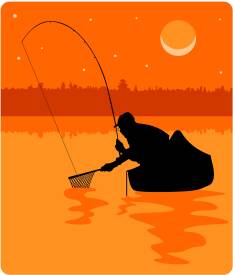Randi Rotjan, a coral ecologist at the New England Aquarium in Boston, shares stories from her time spent studying coral reefs. Randi has been stung by jellyfish, coral, you name it. It's all part of the job, studying coral reefs on location in exotic locales like the Red Sea or the Phoenix Islands, the world's largest marine protected area. She goes face to face with hermit crabs as they line up, after the usual jostling, to form "vacancy chains", waiting to trade in their old shells for newer, larger ones. It's the classic upgrade, and it follows rules--perhaps ones we humans might care to copy. Rules abound undersea--as does death. If the water temperature is too warm, corals bleach, starve, and die. And if the tube worms that thrive near deep sea hydrothermal vents venture too far from the fissure, they'll freeze. But most of the time, they're doing just fine, thank you, feasting on the poisonous spewing gases they're so fond of. Note: this is part 1 of 2 with Randi Rotjan, and it features an audio interview. Part 2 features a short video on the subject of corollivary, the eating of coral by fish.
